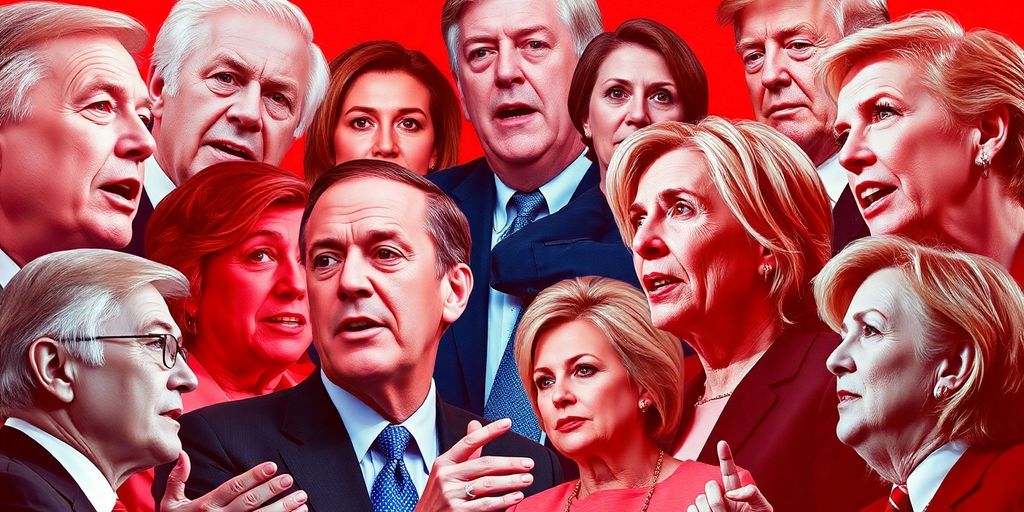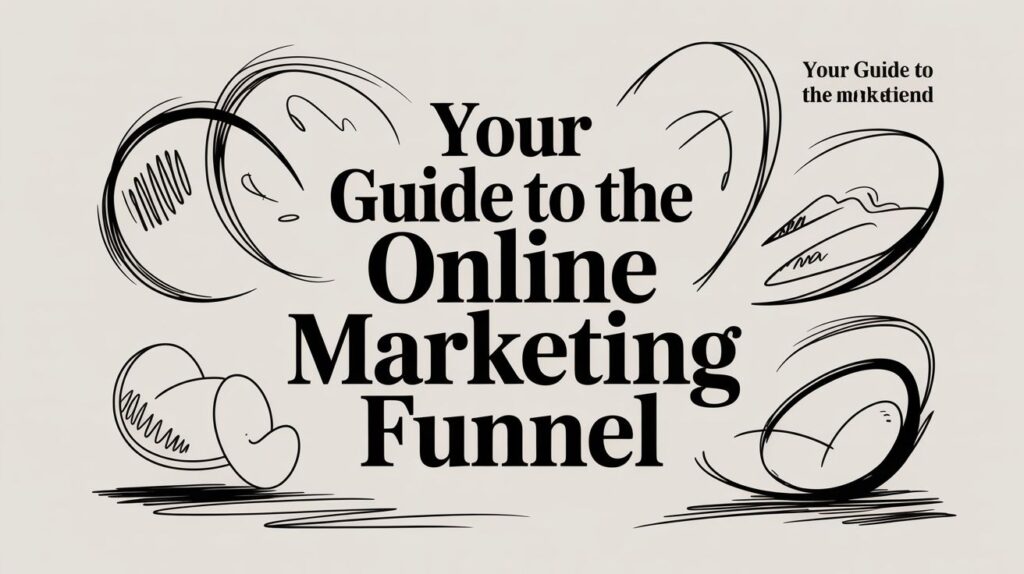The Left Has Become So Loud That People Are Seeking Conservatism Again: A Shift in Political Discourse

In today’s political scene, there’s a noticeable trend: folks are swinging back to conservatism. Why? Well, it seems like the left’s become so loud that people are seeking conservatism again. This isn’t just about politics—it’s about the way society’s talking, debating, and, frankly, arguing. Some say it’s the noise from the left that’s pushing people to reconsider what they believe. Whether it’s social media arguments, cancel culture, or just the general vibe of political correctness, there’s a shift happening, and it’s worth looking into. Let’s dig into why this is happening and what it means for the future of political conversations.
Key Takeaways
- The left’s strong presence and voice are pushing some people towards conservative values.
- Social media is a major player in how political views are shaped and shared.
- Cancel culture and political correctness are influencing public opinion and political leanings.
- Identity politics play a significant role in how individuals align politically.
- The media landscape is affecting how people view and choose their political beliefs.
The Rise of Conservative Sentiment in a Polarized Society
Understanding the Shift in Political Allegiances
In recent years, there’s been a noticeable shift in political allegiances as many individuals, especially young men, feel increasingly alienated by the prevailing social narratives. Some feel labeled as ‘toxic’ simply for being who they are, and this perception is pushing them toward conservative ideologies, which they perceive as more inclusive of their identity. This shift is not just about politics; it’s about finding a place where they feel respected and valued.
The Role of Social Media in Political Polarization
Social media platforms have amplified voices on both ends of the political spectrum, but they’ve also created echo chambers that intensify polarization. Algorithms often prioritize content that echoes users’ existing beliefs, making it easier for individuals to become entrenched in their views. This has led to a more divided society, where understanding and compromise are often overshadowed by loud rhetoric.
How Conservative Values Are Resurfacing
Conservative values are making a comeback as people seek stability in a rapidly changing world. These values often emphasize traditional roles, personal responsibility, and a smaller government role in daily life. For many, these principles offer a sense of security and predictability amidst social and economic uncertainties. As society grapples with complex issues, the appeal of a return to "simpler times" becomes increasingly attractive.
The Left’s Influence on Modern Political Discourse

The Evolution of Political Correctness
Back in the day, "politically correct" was just a lighthearted joke among left-leaning folks. You’d hear someone tease a friend about their choice of words or actions not quite matching up with their ideals. But over time, this term has morphed into something bigger—a tool used by the right as a critique of the left’s perceived moral superiority. Now, it’s not just about avoiding offensive language; it’s become a battleground for ideological clashes. This shift has made political correctness a flashpoint in debates, with some seeing it as necessary for progress and others as a threat to free expression.
The Impact of Cancel Culture on Free Speech
Cancel culture—what a buzzword, right? It started as a way to hold people accountable, but now it’s taken on a life of its own. Originally, it was about calling out harmful behavior, but today, it’s also seen as a way to silence dissenting voices. This has led to a lot of debates about whether it stifles free speech or protects marginalized groups. The fear of being "canceled" has changed how people speak online, making them think twice before posting. Some argue it’s a necessary tool for social justice, while others believe it’s gone too far, creating a chilling effect on open dialogue.
How the Left’s Rhetoric is Shaping Public Opinion
The language used by the left has a profound impact on how people think and talk about issues. Terms like "equity," "inclusivity," and "diversity" are now common in everyday conversations. This shift in rhetoric has influenced public opinion, making these concepts more mainstream. But it’s not just about the words; it’s about how they’re used to frame debates and push for change. While some see this as a positive development, others view it as an overreach that alienates those who don’t fully agree. The left’s ability to shape discourse is undeniable, and it plays a crucial role in how political narratives are constructed today.
Public discourse is evolving, driven by the left’s emphasis on social justice and equality. As these ideas permeate society, they challenge traditional norms and push for a more inclusive future. Yet, this transformation is not without its critics, who argue that it may lead to increased division rather than unity.
The Role of Identity Politics in Shaping Political Views
How Identity Politics is Driving People to Conservatism
Identity politics is all about focusing on the interests and perspectives of specific social groups. While it aims to give voice to marginalized communities, it sometimes leads to division. This division can push some individuals towards conservatism, as they feel alienated by what they perceive as an overemphasis on group identity over individual merit. For some, the constant focus on race, gender, and sexuality in political discourse can feel overwhelming, leading them to seek refuge in more traditional, conservative values.
The Perception of Victimhood and Its Political Implications
The narrative of victimhood often comes into play in identity politics. When groups highlight their struggles and injustices, it can create a perception that everyone is a victim of some form of oppression. While this can foster empathy and understanding, it can also lead to fatigue and resistance. Some people might feel that their own experiences are being overlooked or invalidated, prompting them to shift towards conservative ideologies that emphasize personal responsibility and resilience.
The Influence of Identity on Voting Patterns
Identity politics significantly influences how people vote. Many voters align themselves with candidates who they feel best represent their identity and values. This can lead to voting patterns that are heavily influenced by race, religion, gender, and other identity markers. In some cases, individuals may vote against their economic interests because cultural or identity issues take precedence. Identity can be a powerful motivator, shaping not just individual political views but also the broader electoral landscape.
Identity politics seeks to address and eliminate negative stereotypes and misrepresentations of specific groups, advocating for their rights and recognition in society. However, the intense focus on identity can sometimes overshadow broader societal issues, leading to a complex political landscape.
The Impact of Media on Political Ideologies
The Power of Conservative Media Outlets
Conservative media has carved out a significant niche, shaping the political views of countless Americans. Fox News, talk radio, and a slew of online platforms have become the go-to sources for conservative viewpoints. They offer a narrative that often contrasts sharply with mainstream media, resonating with those who feel their beliefs are underrepresented. These outlets don’t just report news; they frame it in a way that aligns with conservative values, often emphasizing themes like personal responsibility and traditional family structures.
The Left’s Struggle to Capture the Media Narrative
On the flip side, left-leaning media often finds itself in a battle for influence. While platforms like MSNBC and certain online publications push progressive ideas, they frequently face accusations of being out of touch with everyday Americans. The perception that left-wing media is elitist or overly academic can hinder its reach. Moreover, the fragmentation of media means that leftist outlets must compete not only with conservative media but also with the vast array of voices on social media, where algorithms can skew content towards more sensational or polarizing topics.
How Media Consumption Affects Political Beliefs
Media consumption patterns significantly impact political beliefs. People often gravitate towards news sources that reinforce their existing views, creating echo chambers that amplify partisan divides. For example, a person who regularly tunes into conservative media may become more entrenched in their views, while someone who follows progressive outlets might lean further left. This selective exposure can lead to a more polarized society, where individuals are less likely to encounter opposing perspectives. In essence, the media we consume not only informs us but also molds our worldview, sometimes reinforcing biases and deepening societal divides.
In a world saturated with information, the media landscape plays a pivotal role in shaping political ideologies. As individuals, it is crucial to seek diverse perspectives to foster a more balanced understanding of complex issues.
The Cultural and Social Factors Behind the Shift to Conservatism
The Influence of Traditional Values on Modern Society
In today’s fast-paced world, traditional values are making a comeback. People are looking for stability and a sense of belonging, and these are often found in age-old customs and beliefs. Many individuals feel that modern society is moving too quickly, leaving behind important principles that once held communities together. This resurgence of traditional values is a key factor driving the shift towards conservatism. As people search for meaning and connection, they often turn to the familiar comfort of the past.
The Role of Religion in Political Alignment
Religion has always played a significant role in shaping political views. In recent years, we’ve seen a renewed interest in religious beliefs as a guiding force in politics. Many conservatives find that their religious values align with their political ideologies, especially on issues like family, education, and community. This alignment is not just about personal belief systems; it’s about how these beliefs influence broader societal norms and policies. As such, religion continues to be a powerful motivator for those seeking a conservative political path.
How Cultural Backlash is Fueling Conservative Growth
There’s a growing sentiment that modern culture is straying too far from its roots, leading to a backlash that fuels conservative growth. People are concerned about the rapid changes in social norms and the perceived erosion of cultural identity. This backlash is not just about resisting change; it’s about preserving a way of life that many feel is under threat. This cultural pushback is a significant driver behind the rising interest in conservatism, as individuals seek to protect and maintain their cultural heritage.
In a world where change is the only constant, many are finding solace in the familiar. The shift towards conservatism is not just a political movement; it’s a cultural response to a rapidly evolving society. People are yearning for a sense of stability and continuity, which they often find in conservative values. It’s about holding onto something tangible in an ever-changing world.
The Future of Political Discourse in America

Predictions for the Political Landscape
In the coming years, the political scene in America is likely to see some major changes. The country’s shifting demographics and evolving social values will play a big role in shaping future politics. Generational shifts will bring new priorities to the forefront, with younger voters often more concerned about climate change and social justice issues. While older generations might focus on economic stability and national security, the younger crowd will push for more progressive policies. This generational divide could lead to a more polarized political environment, but it might also create opportunities for fresh perspectives and solutions.
The Potential for Bipartisanship in a Divided Nation
Despite the current political divide, there’s hope for bipartisanship. Americans are increasingly frustrated with the constant bickering between parties and are looking for leaders who can bridge the gap. Some political figures are already working towards this, focusing on common ground issues like infrastructure and healthcare. By prioritizing collaboration over confrontation, there’s a chance to mend some of the rifts and create a more united political front.
How Emerging Generations are Shaping Politics
The influence of young voters is becoming more apparent with each election cycle. They’re more engaged and informed than ever before, thanks in part to social media and digital platforms. These emerging generations are not just passive observers; they’re actively participating in shaping policies and advocating for change. Whether it’s through voting, protests, or online campaigns, their impact is undeniable. As they continue to step into leadership roles, they will bring new ideas and challenge the status quo, potentially leading to a more dynamic and responsive political system.
The future of American politics hinges on the ability of its leaders and citizens to adapt to changing times. Embracing diversity of thought and fostering open dialogue can pave the way for a more inclusive and effective political discourse.
Conclusion
In the end, it seems like the political pendulum is swinging back. People are feeling overwhelmed by the loud voices on the left, and some are finding comfort in conservative ideas again. It’s like when you get tired of the noise and just want some peace and quiet. This shift isn’t just about politics; it’s about people looking for a place where they feel heard and understood. As the debate continues, it’s clear that both sides have lessons to learn. Maybe, just maybe, we can find a middle ground where everyone feels like they belong. Until then, the conversation goes on, and who knows where it will lead next?
Frequently Asked Questions
What is causing people to switch to conservative views?
Many people are turning to conservative views because they feel overwhelmed by the loud and sometimes aggressive nature of the left. They are looking for stability and traditional values.
How does social media influence political beliefs?
Social media platforms often amplify extreme views, making political discourse more polarized. This can push individuals towards conservatism if they feel the left is too dominant online.
What is cancel culture, and how does it affect free speech?
Cancel culture refers to the practice of withdrawing support for people or companies after they have done or said something considered objectionable. It can limit free speech by creating fear of backlash.
How are identity politics influencing voting behaviors?
Identity politics, which focuses on the interests of specific groups, can drive people towards conservatism if they feel their own identity is being marginalized or attacked.
Why is conservative media gaining popularity?
Conservative media outlets are gaining popularity because they offer an alternative perspective to mainstream media, which some view as biased towards liberal viewpoints.
What role does religion play in political alignment?
Religion often plays a significant role in political alignment, with many religious individuals gravitating towards conservative values that align with their beliefs.







Responses